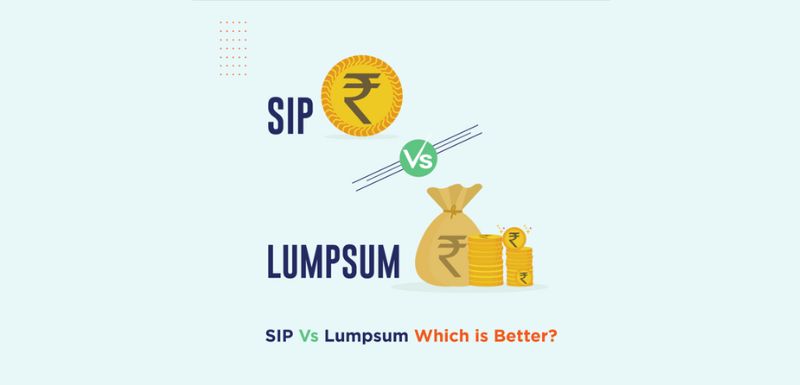Investing Insights
Are Mutual Fund SIP Investments Low Risk?
Many first-time investors believe that SIPs are a low-risk way to enter the market. But is that really true? The idea that SIPs offer guaranteed safety can be misleading, especially if the underlying fund is equity-oriented. This blog breaks down the real risk profile of SIPs and helps you understand how they work in volatile markets.
What are the Different Types of SIPs? How to Use Step-Up SIP to Reach Your Financial Goals Faster
SIPs (Systematic Investment Plans) are a cornerstone of goal-based investing in India. But did you know that there’s more than one type of SIP? From the simplicity of Regular SIPs to the adaptability of Flexible SIPs, and the acceleration potential of Step-Up SIPs, there’s a strategy for every kind of investor. In this blog, we’ll explain the different types of SIPs and show you how a Step-Up SIP could help you reach your financial goals faster.
What Is the Real SIP Return After 10 Years? The Truth Long-Term Investors Should Know
In recent years, SIPs (Systematic Investment Plans) have gained immense popularity among Indian investors seeking long-term wealth creation. But how have SIPs actually performed over a decade? If you're wondering what the average SIP return in 10 years really looks like, and whether it's enough to meet your financial goals, this blog breaks down the numbers and what they mean for your future.
Common SIP Mistakes Investors Should Avoid for Long-Term Success
Systematic Investment Plans (SIPs) have become a go-to strategy for long-term investing, especially for Indian investors. But while SIPs are simple to start, avoiding common mistakes is crucial for achieving meaningful outcomes. From skipping instalments to choosing the wrong options, this blog walks you through the key SIP mistakes to avoid, and how to make the most of your investments.
How Falling Markets Can Benefit Your SIP Plan
Falling markets often make investors uneasy, but if you're investing through a Systematic Investment Plan (SIP), downturns could actually work in your favour. SIPs help you average your purchase cost, stay invested without trying to time the market, and benefit from compounding over time. This blog explores how your SIP can turn market volatility into long-term wealth-building opportunities.
Daily, Weekly, or Monthly SIP: Which One Should You Choose?
While SIPs are the preferred way for most Indian investors to invest in mutual funds, one question often comes up: should you invest daily, weekly, or monthly? Many assume more frequent investing brings higher returns, but does the data support that belief? In this article, we’ll compare SIP frequencies based on long-term market data and help you choose what’s best for your goals and convenience.
Benefits of Investing in SIPs for Goals: How SIPs Align with Your Financial Milestones
For Indian investors focused on goal-based investing, SIPs offer one of the most effective routes to financial success. Whether you’re planning for your child’s education, your dream home, or a comfortable retirement, SIPs help you stay consistent and resilient through market ups and downs. This blog explores how SIPs support specific financial goals through disciplined investing, and why they’re a strong fit for long-term wealth creation.
How to Start SIP Investment: A Beginner-Friendly Guide for Long-Term Growth
If you're wondering how to start SIP investment, you're not alone. SIPs, or Systematic Investment Plans, have become one of the most popular tools for long-term wealth creation in India. They’re simple, disciplined, and powerful - especially for those earning monthly incomes and looking to grow their savings through mutual funds. This guide explains how SIPs work, how to get started (both online and offline), and why they are trusted by millions of investors for goal-based financial planning.
How to Use SIPs to Build Long-Term Wealth with Discipline and Consistency
Creating long-term wealth isn’t about chasing market highs , it’s about staying consistent, investing regularly, and letting time and discipline do the work. This is where SIPs (Systematic Investment Plans) come in. If you're wondering how to use SIPs for long-term wealth, this article walks you through the power of consistency, compounding, and how even small investments can lead to significant outcomes.
SIP Vs Lumpsum Investments: Which Is Better?
Investing towards financial goals can be done in two ways. The first option is to invest a part of the income every month for the long term. The other option is to invest a lumpsum amount once and stay invested for the long term. Both options have pros and cons, and investors often wonder which option they should choose. In this article, we will discuss SIP vs Lump sum, and which approach an investor should take.
How can you make the best use of a SIP Calculator?
If you’re new to Mutual Fund investing, the first question that you’ll ask is whether you should invest a lump sum or start a SIP (Systematic Investment Plan). If you decide on a latter, a Mutual Fund SIP Calculator can be extremely helpful. However, a lot of investors who are new to SIP investments tend to remain confused about how to use a SIP calculator to arrive at an investment plan that is optimally suited for their financial goals. Part of this confusion about the SIP calculator stems from the fact that many investors end up confused about how SIP returns are calculated in the first place!
3 Things All Mutual Fund SIP Investors Should Do Right Now
Mutual Fund SIPs require patience and understanding of market cycles to deliver long-term growth. Staying committed to your goals and avoiding knee-jerk reactions during market volatility will help you achieve greater returns. Stick to your SIP strategy, and let compound growth work its magic.
Latest Posts
Retirement Planning in India: A Practical Framework for Long-Term Security
Feb 25, 2026
When Is the Right Time to Start Investing for Your Goals?
Feb 23, 2026
How to Adjust Your Investments After a Salary Raise
Feb 20, 2026
Why Mid-Cap Allocation Needs More Discipline Than Large Cap
Feb 18, 2026
Why Return-Focused Investing Fails in Volatile Markets
Feb 16, 2026
The Importance of your Child’s Education Goal
Feb 28, 2024
Why Retirement Planning is Important
Nov 08, 2023
Oct 31, 2023
Investing Behaviour and the investing roller coaster
Oct 12, 2023
Investing Stories
.jpg)

.jpg)


_(41).jpg)
.jpg)

.jpg)






.jpg)

.jpg)
_(1)1.jpg)
.jpg)
.jpg)
.jpg)